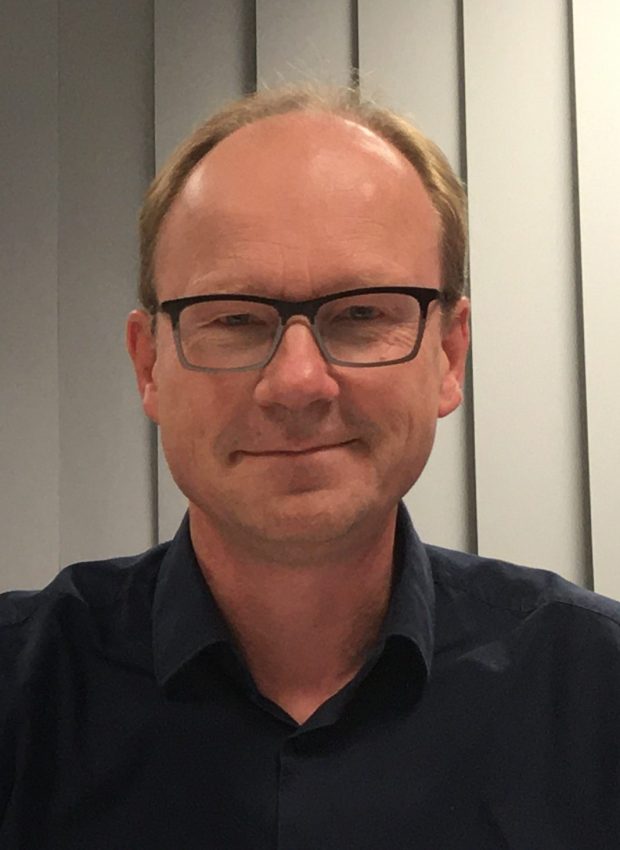First Generation Academics introduce themselves Markus Henke, Professor of Electric Drive Systems, as Role Model at TU Braunschweig
The project Role Models: First Generation Academics at Technische Universität Braunschweig makes social diversity at our university visible. By means of short interviews, various members of TU Braunschweig introduce themselves who were the first in their family to study. In this way, academic role models are created. In addition, other First Generation Students can get to know different educational biographies.
When did you decide to study and what influenced this decision?

Prof. Markus Henke, Head of the Institute for Electrical Machines, Traction and Drives (IMAB). Photo credit: Markus Henke/TU Braunschweig
“Maths and physics suit you – machinist or electrician?” That was the question asked after 10th grade in my middle class home town of Oelde in Münsterland. The people around me had amazing careers within companies, managed departments and companies – without studying. So I started my vocational training as a power electronics technician in a company for packaging machines according to the motto ‘learn the right things first’. As the eldest son in my family, I was the first to leave school and set off for new shores.
After my apprenticeship, I thought that a ‘job in the office’ as a master craftsman or technician might be the next step in my career. At that time in the 80s, there were very few apprenticeships, but also few attractive jobs in electrical development.
Therefore: first the Bundeswehr (Federal Armed Forces). There I met a lot of people who had clear plans for their studies. There were also some daring people in my circle of friends who were starting their studies. So I took a closer look at the subject, visited information days at universities and talked to ‘real engineers’. That slowly aroused my interest and motivation. So I enrolled at Paderborn University to study electrical engineering.
What hurdles have there been on your career path so far? What helped you to overcome them?
In retrospect, the hurdles were more ‘before’ than ‘during’ my studies. Although my parents were professionally anchored in leading positions in the middle class, they had little connection to academic careers. They were very committed to supporting my studies, but they only really trusted the academic track when my doctoral supervisor put on my doctoral hat after my doctorate – great pride!
Nobody gets stuck in the German education system, even if you take a wrong turn. That was enough backup for me to consider studying. When I arrived at the university, the situation seemed surreal at first. Older students talked about 12 to 16 semesters of study, stays abroad, student life. But all I really wanted was to finish my studies and then get back into practice. So I networked and found fellow students with similar plans. So we got along very well as a group and were able to master our studies as well as the other students.
What personal resources can you rely on?
There were skills I had acquired along the way that helped me find my way at university: I was used to acquiring information. I had learned to get along with different characters and to move things forward in a solution-oriented way. In my vocational training, I also experienced some really tough, self-reliant defeats and was able to deal with them. That’s why exams and tests were always more of a sporting challenge than a chore.
What ideas do you have to improve equal opportunities for First Generation Students?
If there are no parents to drive and advise, it is important to start with advice from teachers or professional acquaintances at an early stage. In this way, initial reservations on the part of students and, above all, parents can be dispelled and they can be motivated. In this early phase, universities can provide attractive frameworks through events such as the Kinder-Uni (Children’s University) or the Hochschulinformationstag HIT (University Information Day).
First Generation Students’ start on the same line with the same potential and possibly even less external pressure. In the course of their studies, close networking with other students is useful and important. The university can help there, too. With the appropriate initiative of one’s own, I therefore see absolutely equal opportunities and equal possibilities for successful studies for the ‘First Generation’. Incidentally, I am also aware of this with my daughter, who is now a student and is dealing with exactly the same uncertainties and unanswered questions in her studies as I was back then.
From today’s perspective, what message would you give your student self?
If you really want something, you can do it, but nothing can be created out of nothing! That is my wife’s motto in life and fits perfectly here.
